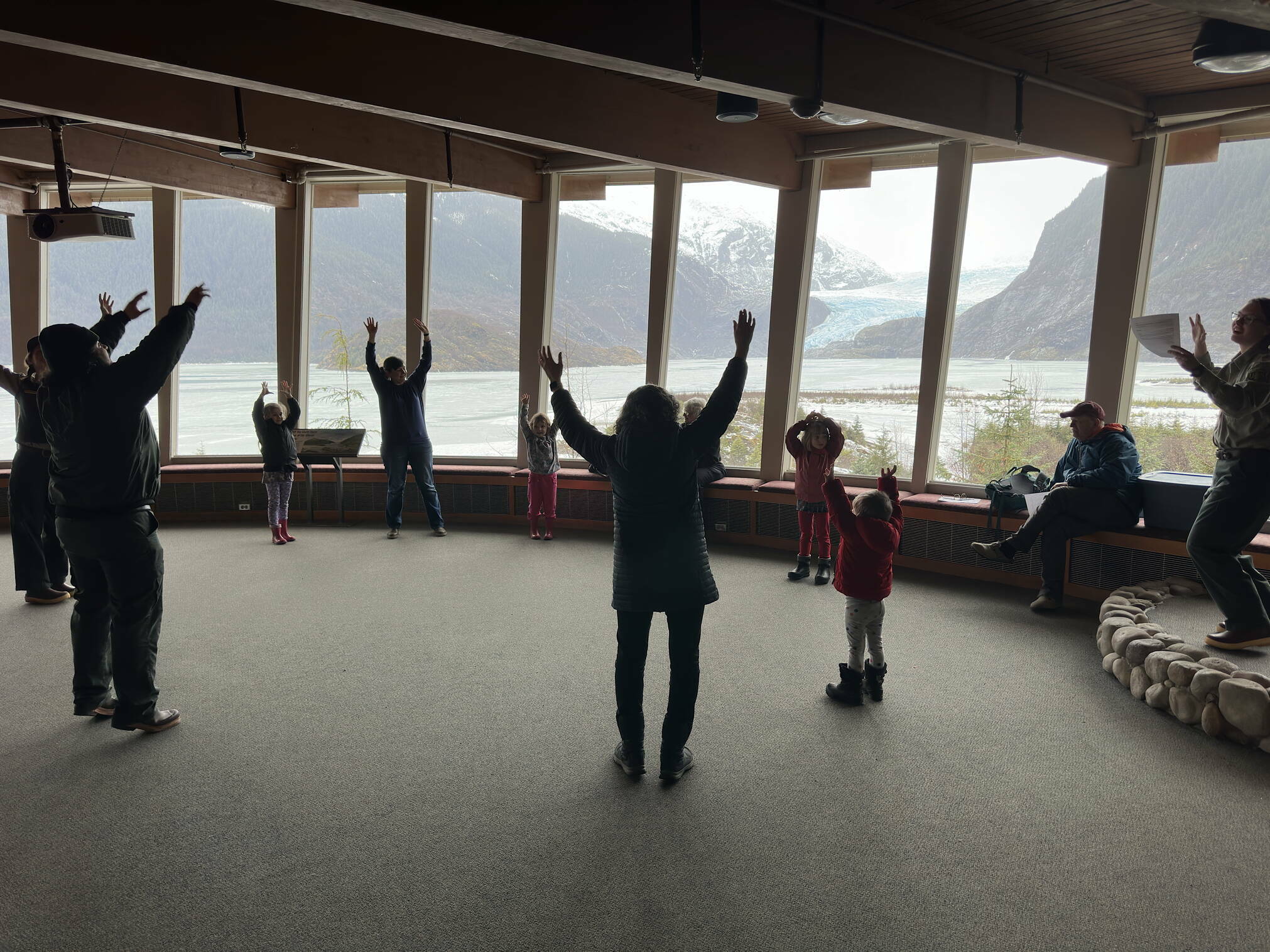The Mendenhall Glacier Visitor Center is planning “half time” operations with limited opening hours during this year’s tourism summer due to the Trump administration’s mass firings that have caused considerable reduction of and uncertainty among employees there.
A total of 31 of 32 federal employees at Mendenhall Glacier Recreation Area were fired in a mass purge in February, with roughly half opting to return when judges and a labor panel determined the firings were illegal, according to Alexandra Pierce, tourism manager for the City and Borough of Juneau. With the first cruise ship scheduled to arrive in Juneau on April 14, “local U.S. Forest Service (USFS) leadership have scrambled to develop and implement a backup plan” that includes opening the visitor center for seven hours per day.
“The idea is that bus tourists would still continue to go out there with the visitor center closed — obviously not as great an experience for the guests, especially if it’s raining — and there would be a very dramatically reduced staff presence on site to provide safety, keep people away from bears, that kind of thing,” she said.
The visitor center was open 8 a.m. to 7:30 p.m. every day from May through September of last year, according to the U.S. Forest Service’s website.
A proposal by Pierce is seeking to boost worker presence at Juneau’s most popular tourist attraction by allocating $200,000 in per-passenger fees from cruise ship visitors. The funds could be used to support other entities with people working at the Mendenhall Glacier Recreation Area including a year-old cultural ambassador program overseen by the Central Council of the Tlingit and Haida Indian Tribes of Alaska, and members of the science education nonprofit Discovery Southeast who among other things staff a gift shop at the visitor center.
“Ideally, these funds could be used to fill existing positions by allowing partner organizations to hire terminated employees,” Pierce wrote in a memo to the Juneau Assembly, which is scheduled to consider the proposal at its regular meeting Monday night.
Tlingit and Haida’s ambassador program — the result of a co-stewardship agreement for management of the Mendenhall Glacier Recreation Area reached by tribal officials and the U.S. Forest Service in 2023 — is expected to have eight employees in its second year, two more than last summer, said Ralph Wolfe Góos’k’, director of Indigenous Stewardship Programs for the tribes. He said adjustments based on last year’s experiences were already planned for this year’s ambassadors before the disruption to Forest Service staff occurred.
“I don’t think there’s a real accurate count that’s happening so we’re working on that to see the actual number of folks that we have contact with out there, as well as tracking how many tickets are sold and that kind of information so we can just kind of try to help see the logistics behind it,” he said. Also, “we’re going to be moving around quite a bit more. So people will have different interactions on different areas, whether it’s at the front meeting the folks walking in and kind of counting, or the people inside kind of moving around the three stations inside the visitor center, and then having a couple posted outside, walking the trails, just kind of giving general guidance.”
The ambassadors focus largely on providing the Lingít history of the area, original names of places and features, and answering questions about tribal culture past and present. Góos’k’ said the ambassadors typically worked at the glacier from 9 a.m. to 6 p.m. last year and are planning the same this year, keeping the possibility of filling in for some duties that Forest Service employees might normally perform.
“I think it would have happened anyway, because I think we just were so flexible,” he said. “Like covering positions inside at the counters, the greetings, those kind of things would have been happening. Our main emphasis, though, is being outside.”
Shawn Eisele, director of Discovery Southeast, said Thursday that during the past year there were about 12 people working at the glacier visitor center through his program — not all full time — but that won’t be possible this year due to the reduced hours. He said about half of the nonprofit’s revenue comes from sales at the visitor center’s gift shop, so the federal cutbacks are hurting that as well as limiting visiting access.
“If we support programs and local schools through bookstore sales and they cut the hours there by half it’s not going to be the same as before,” he said.
Eisele said staff at his nonprofit, like the cultural ambassadors, will be willing to step in where possible if needed to fill gaps when there’s a shortage of available Forest Service staff. But he said the plan being considered by the Assembly should be considered a short-term remedy, not a new model for how tourism operations at the glacier should continue in the future.
“I think the idea is to fill the gap that is being created, but it’s just to prop it up for the short term,” he said.
• Contact Mark Sabbatini at mark.sabbatini@juneauempire.com or (907) 957-2306.

